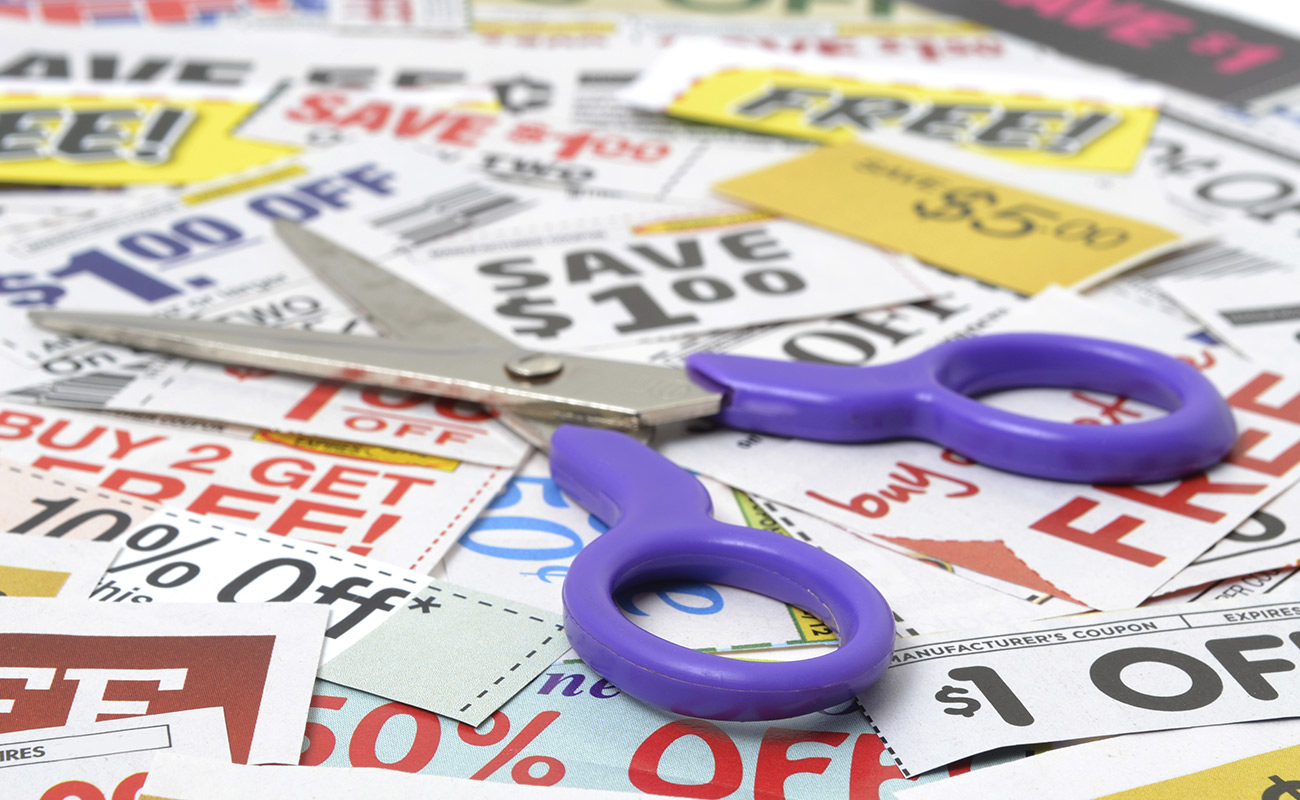The Drug Coupon Conundrum

Coupons have been around since the late 1800s. Coca-Cola was the first to offer them, but they didn’t come in a glossy magazine in the Sunday paper. The soda supergiant began dispensing hand-written tickets for a free pop in 1894. According to Coupon Sherpa, by 1913 an estimated 1 in 9 Americans had received a free Coke for a total of 8.5 million free drinks. Coca-Cola is now one of the most well-known brands in the world and enjoys 50 percent market penetration.
Today, coupons are as American as apple pie. Well, sort of. And consumers use them for just about everything. From restaurants to grocery chains, clothing stores to car dealers, you can find a coupon for just about all your shopping needs, including prescription drugs.
Most savvy shoppers know that all they have to do is Google a product and up pops a coupon code. Enter the code online or show it to the cashier and you’re in business. It’s a great way to save and we often feel like we’re cheating the system by getting away with paying less. But the American retailer is several steps ahead of us. And when it comes to Big Pharma, I’d venture to say many steps ahead.
The rising cost of prescription drugs has promulgated a coupon frenzy in the pharmaceutical industry. Patients eager to save on out-of-pocket costs are not afraid to ask their doctor, pharmacist, or even Google if there’s a coupon that will help lower – or sometimes eliminate – their out-of-pocket expense. Today, more than 700 branded drugs offer coupons, and patients are often able to reduce their out-of-pocket costs by $50, $1,000, or even $7,150.
You might be wondering why I mention $7,150. Today, that’s the most amount of money an individual health care consumer will pay out-of-pocket (OOP) for health care costs in a given year. The OOP max was set by the Affordable Care Act (ACA) and designed to protect consumers from astronomical health care expenses. The law is well-intentioned, but Big Pharma found opportunity – BIG opportunity – in this law.
According to Express Scripts, the cost of name-brand drugs has doubled over the last five years. Ironically, this is the same timeframe of the passage and enactment of the ACA. Drug makers realized that if they offer a coupon that covers consumers’ out of pocket costs, they could tack that money onto the backend of the drug. The drug company looks like a hero and the insurance company picks up the tab. Sounds great, right? Wrong.
Insurance companies, like CDPHP, have seen pharmacy costs skyrocket in recent years. Today, 22 cents of every insurance premium dollar is spent on drugs. Unfortunately, we cannot continue to eat these costs, so we’ve had to raise premiums.
A study by the UCLA School of Management found that drugs without coupons have an average price growth of 7-8 percent per year. However, drugs with coupons have an average price growth of 12-13 percent per year. The study goes on to say that coupons increase branded sales by more than 60 percent.
Although coupons can be beneficial at the point of sale, they lead to an increase in the overall cost of health care by promoting the use of more expensive drugs and increasing the cost for health plans. A recent study by the Pharmaceutical Care Management Association found that over the next 10 years, coupons will increase drug costs by $32 billion; $2.3 billion right here in New York.
Coupons could be used responsibly but there is currently no way to track their usage. Today, coupons look no different than cash, which is why they count toward a patients’ out of pocket max and/or deductible. If pharmacies had the ability to appropriately track and report the usage of coupons, consumers would still be able to take advantage of the cost savings, but Big Pharma would lose some of its leverage.
Each and every day, health care leaders like myself are searching for ways to curb runaway health care costs. But frankly, we are running out of options. Drug coupons are a small but growing piece of the cost conundrum and need to be addressed. Because no one – and I mean no one – wants to see brands like Mylan, Pfizer, or Merck become a household name like Coca-Cola.
 The Daily Dose
The Daily Dose
Comments are closed.